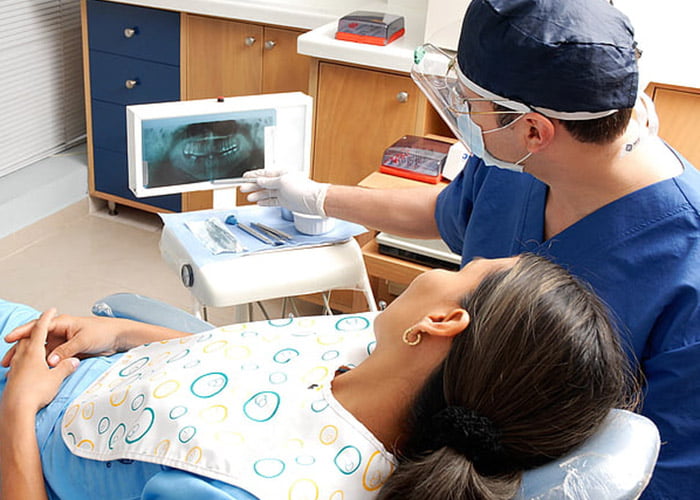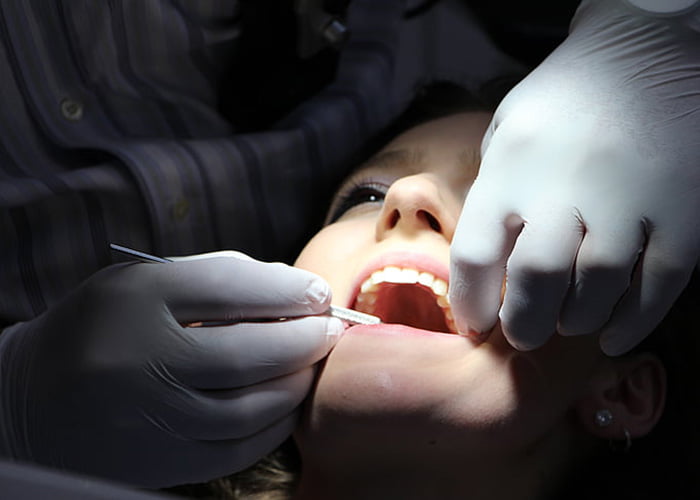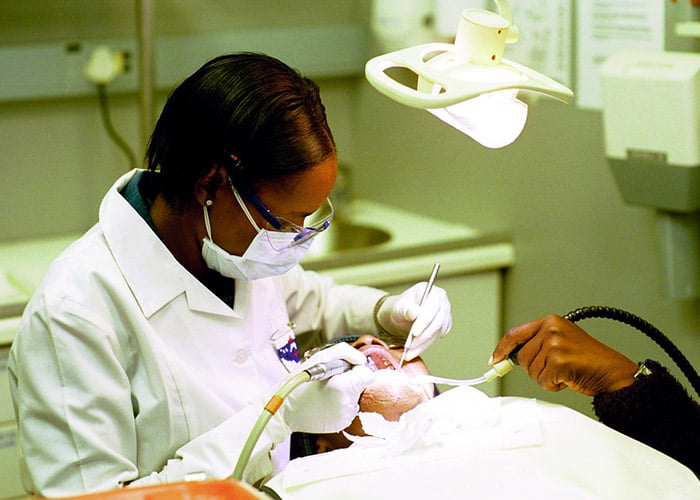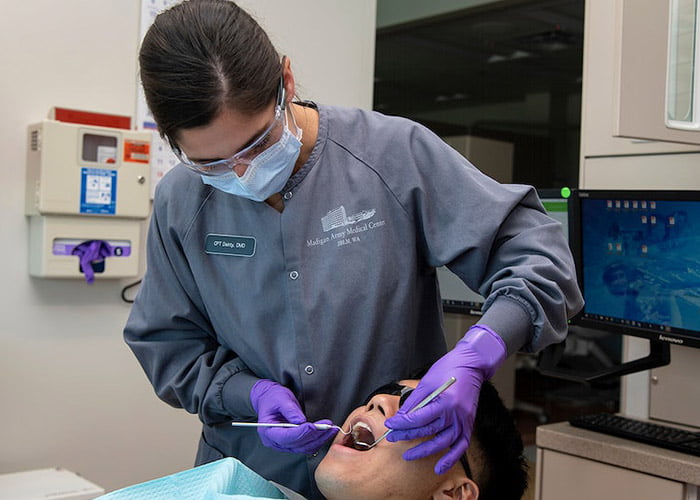Are you planning to have your tooth removed but concerned about the cost? This article is what you need now.
The tooth extraction cost varies significantly depending on multiple factors. If you want to cut it down, consider having dental insurance.
Dentistforlife will explain all the factors that affect the cost of the service. Let’s read it carefully before visiting your dentist!
Why Are Teeth Extracted?
Your dentist may recommend a tooth extraction if you have one of these problems:
- Decay: A decayed tooth may spread the infection to other teeth. Hence, you should remove it as soon as possible.
- Impaction: Impacted teeth cause infection and pain in your mouth. It’s necessary to extract them.
- Gum diseases: These diseases will damage your teeth’ supporting structure once they progress.
- Crowding: Your mouth may not have enough space to accommodate all of your teeth. So consider removing the extra one.
- Orthodontic treatment: To have more space in your mouth for the orthodontic treatment, you will need to remove one or more teeth.

How Much Does a Tooth Extraction Cost Without Insurance?
The cost of tooth extraction depends on several factors, such as the type of procedure and the number of teeth you want to pull.
There are three main types of tooth extractions:
- Simple extraction: This procedure is the most straightforward treatment, involving loosening the decayed tooth and removing it without any surgical intervention. Its average cost is from $75 to $250 for a tooth.
- Surgical extraction: Due to the surgical intervention, the cost of this service is higher, from $180 to $550.
- Wisdom tooth surgery: Wisdom teeth are harder to handle. The cost for a wisdom tooth removal ranges widely, from $120 to $800.
The condition of your tooth also plays a vital role. Here are the average costs for different treatments without insurance:
- Exposed root or erupted tooth: $196
- Erupted tooth (that needs bone removal): $301
- Impacted tooth: $347 (for soft tissue), $414 (for partially bony), or $510 (for completely bony)
Read more: How Much Does Wisdom Teeth Removal Cost?

You will also perform other treatments in a tooth extraction procedure, increasing the total cost. Let’s see what they are!
Sedation And Anesthetic Fees
Local anesthetic is not compulsory when extracting a tooth. Hence, some insurance companies put it in the “nonessential” group and don’t cover it.
If you want sedation or anesthesia to relieve your pain, it will be a part of the total cost of your tooth extraction. The cost varies depending on the sedation method you choose.
For example, nitrous oxide may cost from $50 to $60. Meanwhile, general anesthesia is more expensive, approximately $250.
Other Potential Fees
Sedation is not the only thing to include in your dental treatment. The procedure may consist of other steps as follows, and they increase the total cost:
- Consultation: You will meet with your dentist for a consultation before having a tooth extracted. The diagnosis may cost about $114.
- X-rays: Before executing the tooth removal, the dentist needs a panoramic X-ray to see your jaw and teeth clearer. Expect to pay around $125 for it.
- Medication: After the procedure, you must take certain medications, such as antibiotics and painkillers, to avoid infection. These prescription medications often cost $30 or less.
- Follow-up appointments: There can be fees involved if you need to schedule a follow-up appointment with your dentist.

Cost of Tooth Extraction With Dental Insurance
Insurance plans cover some basic procedures, such as tooth extractions. You can pay at varying percentages, depending on your plan.
You may have insurance that covers 50% or 80% of the cost of primary care. If you choose the latter, you need to pay 20% of the cost because the insurance plan pays 80%.
For example, extracting a wisdom tooth is costly. If it costs $1,000, including other fees, you will only have to pay $200.
Yet, this rule doesn’t apply to all. We will discuss specific cases in this section.
Types of insurance
The amount of out-of-pocket expenses depends on the sort of insurance you have. The common plans are DPPOs (Dental Preferred Provider Organizations) and DHMOs (Dental Health Maintenance Organizations).
DPPO
Plans using DPPOs develop on coverage formulae. You may, for instance, arrange a 100/80/50 program for dental service providers. Under this deal, the insurer will pay you:
- 100% for health promotion
- 80% for simple care, like fillings and extractions
- 50% for more significant procedures (such as root canals)
You wouldn’t have to pay anything out of pocket for preventative treatment. After reaching the deductible, you would be responsible for paying 50% for major operations and 20% for basic repairs.
Dental extractions without surgery are often fundamental procedures. Nevertheless, your plan could consider having oral surgery to remove a tooth as a significant therapeutic service.
It indicates that, instead of paying nothing, you will pay half the cost under a plan like 100/80/50. So, review your plan documents or get in touch with your insurer in advance to learn more.
DHMO
With DHMOs, you can receive and manage your treatment from a primary dental practice. They reimburse you for procedures by dentists in the network.
Furthermore, DHMOs typically have no deductibles and cheaper monthly rates than DPPOs.
Excluding the copay, DHMOs cover all expenses. Keep in mind that the copay value will vary depending on the treatment.
For instance, a major surgical extraction may require a $215 copay but a basic tooth extraction would cost $35. To find out what the limits are for you, check your plan.

Other factors to consider
The cost of your tooth extraction with dental insurance may depend on other factors, such as:
- Type of extraction: Like ones without insurance, simple and surgical extractions cost differently.
- Deductible: A deductible is the amount of money you must pay out of pocket before your dental insurance starts.
- Coinsurance: Some insurance policies charge you a coinsurance fee after you reach the deductible.
- Coverage: Dental insurance plans have a limit for how much they can cover you. You will pay the entire fee for your tooth extraction if you exceed that amount.
- Out-of-network vs. in-network: In-network dentists can cover a higher proportion of the cost.
Risks of Tooth Removal
Even when performed properly, tooth extractions may result in some problems. You may encounter these issues:
- Pain: After the procedure, you will experience swelling and pain in the treated area. Ice packs and painkillers can help you deal with the pain.
- Infection: If you don’t follow proper aftercare, you will be exposed to infection.
- Dry socket: The blood clot may form at the treated area and won’t dissolve easily, revealing the underlying bone.
- Nerve injury: When not executed correctly, tooth extraction may lead to nerve damage. This issue will cause tingling or numbness in your chin, tongue, and lower lip.
Read more: How to stop bleeding after tooth extraction?

The Cheapest Way To Get Tooth Extractions
Dental insurance helps reduce the cost you have to pay for your tooth extraction. But what if you don’t have one? Here are alternatives to consider.
Dental Schools
Dental students at dental schools perform treatments under the supervision of their teachers. These services are less expensive, then.
Dental schools provide this option so their students can have more chances to practice what they have learned. Besides, patients can get an affordable solution for their decayed teeth.
Dental Savings Plans
Dental savings plans, commonly referred to as dental discount plans, are one form of dental insurance. At dentists’ offices, they promote discounted prices on dental services like x-rays, cleanings, and fillings.
You don’t have to pay monthly premiums. Instead, the membership allows an annual payment. You can get savings on treatments.
Payment Plans
Most dental and surgical facilities offer multiple payment plans so that you may spread out the expense of your treatment over a long period. They often encourage you to sign up for membership.
Ask for a Cash Discount
As they might lower their banking and administrative costs, several dental clinics give discounts if you pay in cash.
It is critical to speak with the office directly because this option might not be present at all dental clinics, and the discount’s value may differ.

Tooth extractions are standard dental procedures. If you have insurance, the plan will cover the cost considerably. And without insurance, the fee can be up to $500 per tooth.
Besides, the dental procedure has other variables, such as sedation or mediation. Hence, the total cost will vary.
Hopefully, this article will be helpful for your next dental treatment. If you have any questions, please feel free to ask. Thank you for reading!
Conclusion
In conclusion, the cost of a tooth extraction can vary greatly depending on whether or not you have insurance. Without insurance, the cost can be quite high, but with insurance, you may be able to significantly reduce your out-of-pocket expenses. It’s important to consult with your dentist and your insurance provider to understand the potential costs and coverage options. If you’re in the Marysville, Ohio area, Dentist For Life can provide you with the information and assistance you need to make the best decision for your dental health.



